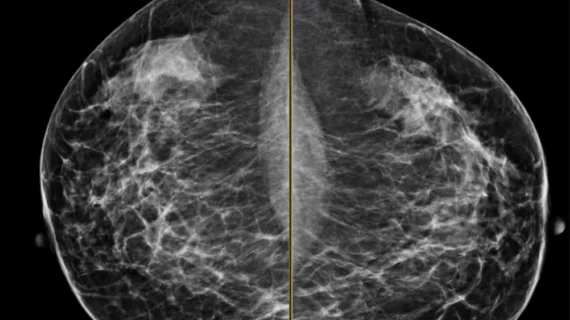ACR & SBI: Norwegian mammo overdiagnosis analysis flawed
The American College of Radiology (ACR) and the Society of Breast Imaging (SBI) have responded to a study in the Annals of Internal Medicine which concluded that 15 to 25 percent of cancers in the Norwegian mammography screening program are overdiagnosed, saying those overdiagnosis rates are overestimated, according to a statement on ACR’s website.
The ACR/SBI statement said the analysis from Kalager et al, published April 3 in Annals, is “flawed” and comes to invalid conclusions about the value of mammography screening.
“The truth is that the Norwegian screening program is too early in its inception, and there is too little follow-up, to draw conclusions about the effectiveness and side effects of mammography with any measurable confidence,” read the statement.
Other studies with long-term follow-ups of national programs introduced before Norway’s offer better estimates of mammography screening performance, according to ACR and SBI. The statement cites the Two-County Trial in Sweden and the U.K. mammography screening program as two programs offering more robust data supporting the benefits of mammography screening. The former estimated that there are 7.5 to 10 deaths prevented for every 2,500 women invited to be screened every two to 2.5 years over 10 years, and the latter showed that two to 2.5 lives are saved for every case of overdiagnosis.
“The more robust, more mature, and more carefully analyzed data not only prove the life-saving benefits of mammography screening, but also indicate a much smaller frequency of harms (including overdiagnosis) than what is suggested by Kalager et al,” said ACR and SBI.
Michael N. Linver, MD, director of mammography at X-Ray Associates of New Mexico, echoed the ACR/SBI statement’s focus on long-term follow-up studies in a previously published interview with Health Imaging.

